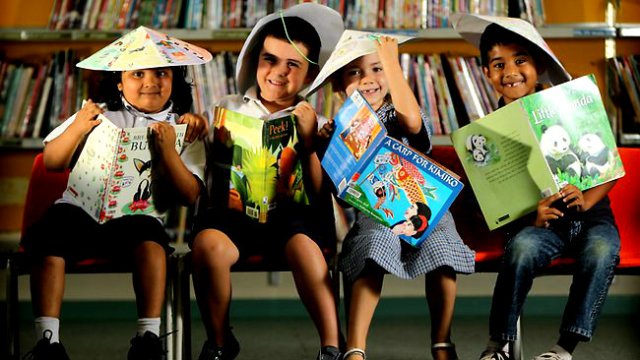Parents are always searching for that special method to give their children an edge in school or in their everyday life, hungry for that revolutionary new research on cognitive development. It can be seen in milk and vitamins commercials how they can make children smarter and what new ingredients will help them develop their brain such as DHA or Zinc. Yet one of the most powerful tool for a child’s brain is something that school kids have been toting around since the eighteenth century…books.
Literary works are the epitome of forward thinkers and known authors often stress the importance of reading fiction for the development of thinking. The question is what can make the difference between readers who are good in remembering and readers who can become creative? The answer comes in what happens after the book is read. Engaging children in the right discussion about what they have read can open up a plethora of learning opportunities, that, if developed well, can assure them a place among thinkers, philosophers and scholars. Here are some ways to get the best out of every book you and your child has read.
Recalling the story
Begin by asking the child about what he has just read. Who are the characters? Where did the story happen? What was the problem? How was it solved? Take note of your child’s age and use words that is easy for him to understand. The aim of this first step is to achieve purposeful reading, so the child understands that every element of the story contributes to how the book is appreciated.
Clarifying
Every time a story is finished, there are always questions that a child would ask. Some of these questions are to clarify details about the story as well as questions to help them understand the story better. How did the magic beanstalk grow so fast? Why did Jack chop off the beanstalk in the end? It can be noticed that the child is trying to make sense of how fiction and reality are different and so parents have to be careful and make sure to explain it in a way that would make sense to the child and his own experiences.
Going beyond the story
When the child learns that he has the ability to explore more things about the story than what he has read, it becomes more fun for him. What if you were Jack? What other magical thing can the castle contain aside from the magical harp and goose? If there is a crossover with another character from another fairytale, who would it be and what could happen? There are numerous possibilities that the child’s interest can be stimulated.
Create
All these discussions can have a creative output from creative writing to arts and crafts. Make materials easily available for your child to express his creative side. He can draw his rendition of the giant or the outline of the castle. He can write a letter to Jack. He can even plan out a sequel to the story. Whatever it is, there is no wrong answer and the child has all the freedom to release his imagination.
As creativity is a measure of the higher order of thinking, this is where the role of fictional books becomes a necessity in our children’s belongings. With these stories and imaginations rich in your child’s life, you can be certain your child possesses a gift for original ideas and innovation later on.
This article was written by Teacher Fran of The Learning Library.
